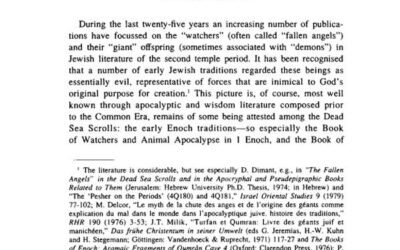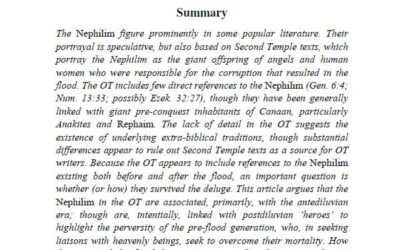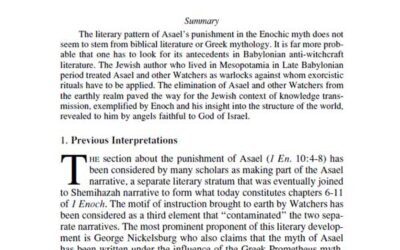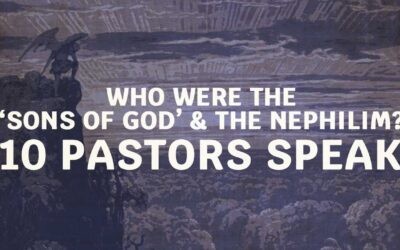In the realm of biblical scholarship, understanding and interpreting Genesis 6:1–4 has been a subject of ongoing debate. One contribution to this dialogue is the research paper titled “The Sons of God in Genesis 6:1–4” by Jaap Doedens which offers an overview of the history of exegesis surrounding this intriguing text.
Jaap Doedens, a Ph.D. graduate from Kampen Theological University, has dedicated his academic pursuits to the study of the Old Testament, the intertestamental period, and the New Testament. Currently serving as a college associate professor at Pápa Reformed Theological Seminary in Hungary, Doedens possesses a diverse linguistic ability, publishing his research in English, Dutch, and Hungarian.
With a solid foundation in theological education, Doedens brings a wealth of knowledge and expertise to the interpretation of this passage.
In The Sons of God in Genesis 6:1–4, Jaap Doedens examines the meaning of the phrase “sons of God” in this biblical passage.
Doedens’ research provokes a fresh perspective with careful examination of the text, linguistic comparisons, and contextual considerations. His work contributes greatly to the ongoing dialogue surrounding this passage, urging scholars and readers alike to reconsider their understanding of the “sons of God” in Genesis 6:1–4.
If you would like to explore further, we welcome you to a database of ancient sources related to Genesis 6:1–4. We are an online library that compiles perspectives from modern Christian commentators and researchers, offering a platform to separate fact from fiction.
Note: The research paper “The Sons of God in Genesis 6:1–4” by Jaap Doedens was published in Brill.






